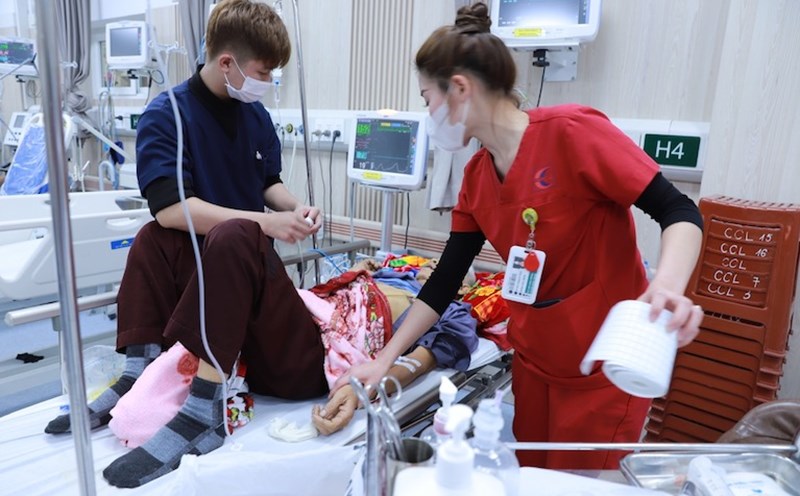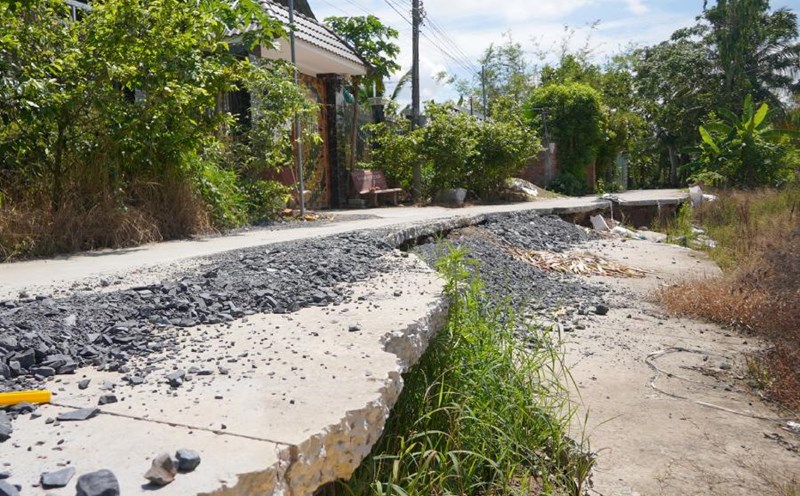Surprised by the increase in burns and fractures
Cases of requesting payment of insurance benefits in early 2025 show that the situation of insurance fraud is still popular, even "exposed". X Life Insurance Company said that recently, they discovered two insurance agents with a number of customers with unusually high burns and fractures. Going deeper into the investigation, Company X found many suspicious points in these compensation claims.
For example, a customer named Q reported a burn. Previously, Q's insurance contract had expired in August 2023, but Q restored it in January 2024 and bought another insurance contract, focusing on high-value accident benefits. Q is said to have intended to commit suicide in early 2019 when he was hospitalized for intestinal diseases due to taking too much sedative.
In another case, a customer named H suffered a burn and was instructed by a woman named T to complete the compensation procedure. Ms. T was previously discovered by insurance investigators to have led a person with a real broken bone to take an X-ray, and used the customer's insurance benefits (no broken bones) to claim compensation. At the same time, this customer H also requested compensation from Y Insurance Company. According to records from Y Company, customer H did not declare that he had purchased insurance contracts from other insurance companies at the time of participating in insurance. This shows the customer's profit motives.
According to the investigation of X Insurance Company, most of the burns with unconvincing records were from customers of the two suspected agents mentioned above, and were recorded as having a cause of burns due to boiling water. Some people were having a party and hit a pot of broth, some burned while cooking at home... The assessment showed that these wounds were mostly shallow, leaving few scars and had the ability to recover quickly.

bone fractures also occurred similarly, with unconvincing reasons, and there were no witnesses to the accident. Further investigation from the police discovered that there was a case of using fake documents (in reality, they were not broken) and prosecuted 2 customers.
The situation at the two insurance companies mentioned above shows that insurance fraud is still quite common in Vietnam. These stories also have the same characteristics as many previous profiteering cases. One is that this group often focuses on buying insurance with large accident benefits, even if they are not workers in a dangerous profession. Two is that the insurance event occurred just a few months after the insurance contract took effect. But an easy sign pointing to profitability is that they buy a lot of contracts from different insurance companies.
Not small consequences
Profit-taking not only causes related subjects to be punished or prosecuted for criminal liability, but also causes damage to insurance companies, affecting the industry in general and the legitimate rights of consumers.
According to Article 213, Penal Code 2015 (amended and supplemented in 2017), insurance fraud can be prosecuted for the crime of "Fraud in insurance business" or "Fraudulent appropriation of property" with a penalty of up to 7 years in prison along with other penalties.
In fact, there have been many insurance fraud cases that have not been caught by the authorities. Most recently, in early April 2025, a woman in Quang Nam was temporarily detained to investigate a criminal case related to the act of taking advantage of life insurance with an amount of more than 2 billion VND.
The market still remember the famous case in 2021 when the investigation agency prosecuted a customer who bought 19 insurance contracts for profit, of which 7 contracts were paid by 5 insurance companies before the case was exposed. These subjects were later sentenced to 7 to 10 years in prison.
In another case, a man in Dak Nong staged an accident and pretended to die to make a profit of 18 billion VND from insurance, and was eventually sentenced to death; or at the end of 2024, 13 defendants in the profit-taking ring, including medical staff in Thanh Hoa, were investigated and prosecuted.
Profit-taking also undermine people's trust in insurance. There have been many cases where customers intentionally took advantage, were discovered by insurance companies and refused to pay benefits. These customers then posted information on social networks about not being paid by insurance, causing many other consumers to think that insurance companies intentionally make things difficult, deny responsibility..., leading to a fear of participating in insurance.

Another impact is that profiteering will make insurance companies tighten and be more cautious in the process of appraisal and inspection of compensation records. In addition, with the above-mentioned acts of insurance fraud from forged fractures or burns, insurance companies can reconsider the relevant terms and benefits when designing new products, affecting other legitimate customers in the future.
In fact, insurance fraud is not only happening in Vietnam but is also a burning issue in many other countries. Many typical cases in the world with large-scale profits, the consequences of which are large investigations and reforms in insurance management policies in the host country.
Compared to these countries, Vietnam has similarities in the form of profiteering, such as arranging accidents or forging records, but the difference lies in the scale and handling level. Developing countries have advantages in data and close linkages between insurance companies and other relevant units, from police agencies to health agencies. Meanwhile, Vietnam still lacks a shared database, so the appraisal and verification of the case is still difficult.
In general, insurance fraud is not only a violation of the law but also causes other serious consequences. Therefore, customers need to understand the law to avoid profiteering when participating in insurance. Limiting insurance profits is also a complicated issue, requiring the coordination of many stakeholders.











